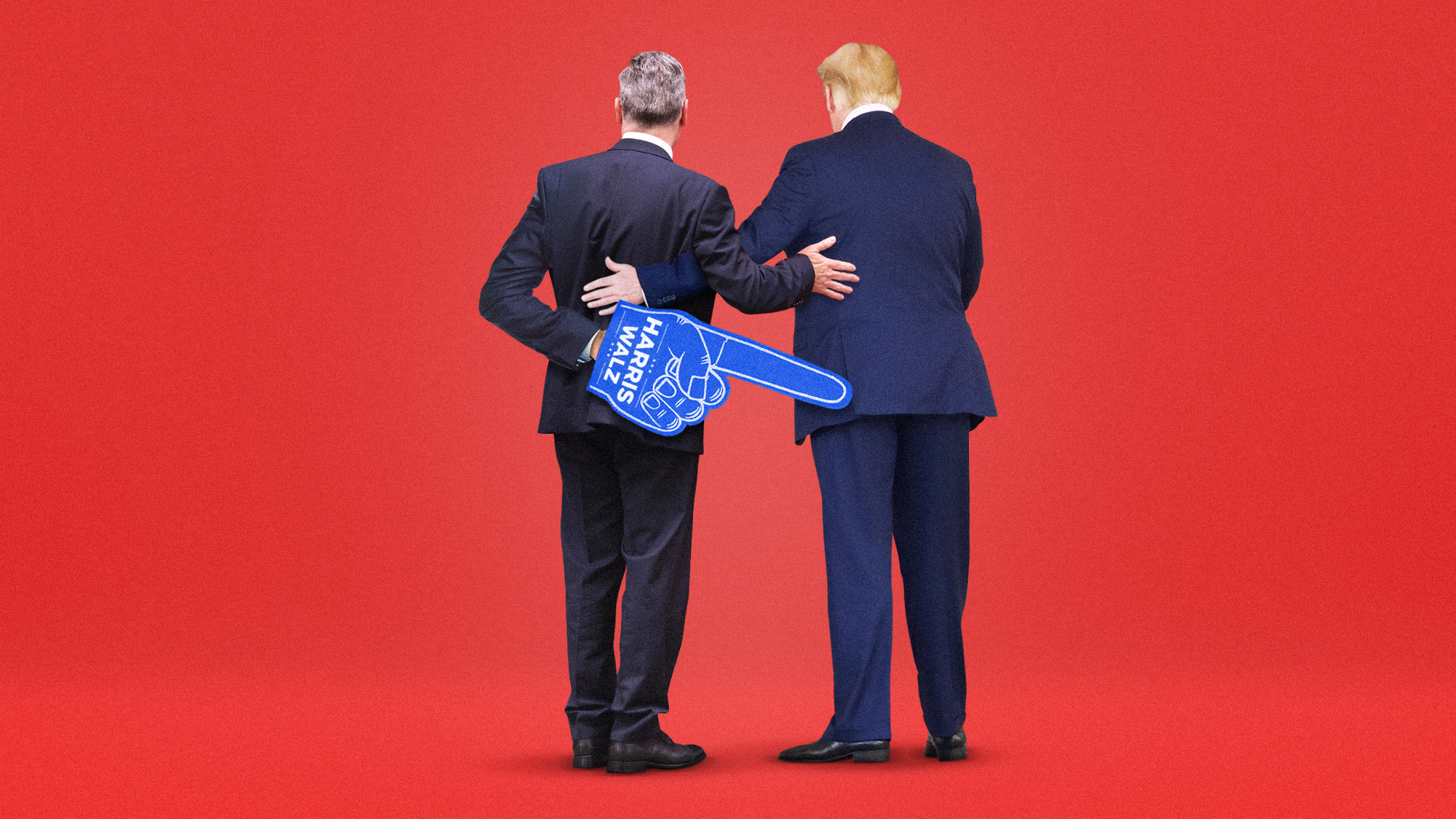Is Labour risking the 'special relationship'?
Keir Starmer forced to deny Donald Trump's formal complaint that Labour staffers are 'interfering' to help Harris campaign

A free daily email with the biggest news stories of the day – and the best features from TheWeek.com
You are now subscribed
Your newsletter sign-up was successful
When Keir Starmer met Joe Biden for the first time this summer, Starmer insisted that the special relationship between the UK and the US was "stronger than ever". Now, he has been forced to insist he still has a "good relationship" with potential incoming president Donald Trump, after the Republican candidate's campaign filed a legal complaint against the Labour Party for sending volunteers to campaign for Kamala Harris.
Labour's head of operations, Sofia Patel, triggered the transatlantic row with a now-deleted post on LinkedIn, seeking additional volunteers to join nearly 100 current and former staff heading to key US swing states, and suggesting the party would "sort housing" for the volunteers.
Trump's team has accused "far-left" Labour Party members of "attempting to influence our election" in an official complaint with the Federal Election Commission. The campaign seized on the offer of housing, claiming it amounts to a "foreign national contribution for the Harris campaign" – prohibited under federal election law.
The Week
Escape your echo chamber. Get the facts behind the news, plus analysis from multiple perspectives.

Sign up for The Week's Free Newsletters
From our morning news briefing to a weekly Good News Newsletter, get the best of The Week delivered directly to your inbox.
From our morning news briefing to a weekly Good News Newsletter, get the best of The Week delivered directly to your inbox.
What did the commentators say?
Trump's legal team were "clearly having fun" when they announced the complaint in a Revolutionary War-flavoured website post entitled "The British Are Coming!", said Politico's London Playbook. But "worryingly for Starmer, the tone was far less playful" from Trump's senior allies. Richard Grenell, tipped as Trump's pick for secretary of state, said that "whenever a foreign government tries to interfere in an election – that's desperation".
Labour volunteers "have gone over pretty much every election" to help the Democrats, said Starmer, and indeed, federal election law allows foreign nationals to campaign in the US provided they aren't paid or given influence on party decision-making. But any current or former Labour employee who travels to the US to campaign for the Democrats is "likely to break electoral law" in a different way, said The Daily Telegraph's US editor Tony Diver.
Labour staff have been instructed to pay for their own flights and car hire, which could easily amount to more than $1,000 (£770), the threshold at which volunteering expenses are considered political donations to the party in US electoral law. Any foreign national who makes a financial contribution is at risk of criminal prosecution and fines, Lawrence Otter, a constitutional and electoral law expert, told the paper. The Harris campaign, which "certainly has to know there is a cost of getting here from England", could also be sanctioned with a potentially "substantial" fine.
Either way, the row is "seriously awkward" for Labour, said the BBC's chief political correspondent Henry Zeffman. All year Labour has "invested significant energy into trying to forge links to the Trump campaign". Last month Starmer met Trump for the first time, inviting David Lammy, the foreign secretary who has infamously described Trump as "racist" and a "neo-Nazi sympathising sociopath", to join them. These recently forged links, said Zeffman, could now be at risk.
A free daily email with the biggest news stories of the day – and the best features from TheWeek.com
This is "appalling, dumb diplomacy", agreed Camilla Long in The Times. More to the point, it was "completely unnecessary". "Americans want hobbits and royals and Shakespeare and pervy actors and dried goods, not rubbish 'we can fix you' politics from a country that's tobogganing at light speed down the G7," said Long. "It would be better if lefties stayed away."
What next?
Playing down the row at PMQs today, deputy PM Angela Rayner said "people in their own time often go on campaigns", adding that "it happens in all political parties". Meanwhile, Defence Secretary John Healey insisted that the "special, deep relationship" had "withstood the political ups and downs on both sides of the Atlantic and we are determined to make that work in future".
Trump's complaint is merely part of a "broader campaign to sow distrust in the election and ward off any accusations of their own campaign coordinating with foreign governments", David Andersen, professor of US politics at Durham University, told the BBC.
Harriet Marsden is a senior staff writer and podcast panellist for The Week, covering world news and writing the weekly Global Digest newsletter. Before joining the site in 2023, she was a freelance journalist for seven years, working for The Guardian, The Times and The Independent among others, and regularly appearing on radio shows. In 2021, she was awarded the “journalist-at-large” fellowship by the Local Trust charity, and spent a year travelling independently to some of England’s most deprived areas to write about community activism. She has a master’s in international journalism from City University, and has also worked in Bolivia, Colombia and Spain.